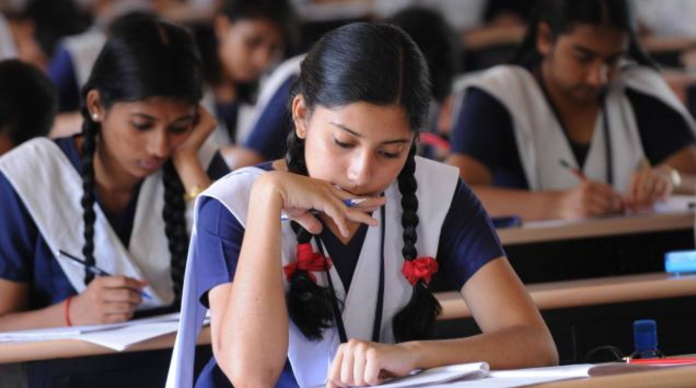Introduction
Education is the foundation of societal progress and individual development. As the world continues to evolve at an unknown pace, it’s imperative that our education systems acclimatise and introduce to meet the changing requirements of scholars. Traditional approaches to academy enhancement frequently concentrate on incremental changes, but in order to truly enhance education, we must embrace innovative approaches that can revise the way we educate and learn. In this blog, we will explore some groundbreaking styles that are transubstantiation seminaries and paving the way for a brighter future.
Individualised literacy
One of the most promising approaches to academy enhancement is substantiated literacy. This innovative approach recognizes that each pupil has unique strengths, sins, and learning styles. By acclimatising instruction to individual requirements, substantiated literacy ensures that scholars admit the support and challenges they bear to reach their full eventuality. This approach leverages technology to give customised literacy guests, allowing scholars to learn at their own pace and explore motifs of interest. Adaptive literacy software, virtual teachers, and data- driven assessments are some tools that grease substantiated literacy. It not only enhances academic issues but also fosters independent thinking, problem- working, and tone- directed literacy chops.
Grounded literacy
Grounded literacy( PBL) offers a departure from traditional rote memorization by engaging scholars in hands- on, real- world systems. Rather than passively entering information, scholars laboriously share in working complex problems, conducting exploration, and uniting with peers. PBL promotes critical thinking, creativity, and problem- working capacities. scholars develop a deeper understanding of the subject matter and apply their knowledge in practical ways. This approach nurtures a sense of power and curiosity, making learning further meaningful and pleasurable.
STEM Education
In the fleetly advancing digital age, STEM( Science, Technology, Engineering, and Mathematics) education has gained significant significance. It equips scholars with the chops needed for the jobs of the future and fosters invention and problem- working capacities. Innovative seminaries are integrating STEM into their classes, offering technical courses, and creating devoted maker spaces and laboratories. By engaging scholars in hands- on trials, rendering, robotics, and other STEM conditioning, seminaries are preparing them to attack real- world challenges and pursue careers in slice- edge fields.
Cooperative Learning Communities
Creating cooperative literacy communities within seminaries can significantly enhance the literacy experience for both scholars and preceptors. Seminaries that prioritise collaboration foster a sense of community, grease peer- to- peer literacy, and give a platform for preceptors to partake in stylish practices. cooperative literacy can be eased through platoon systems, group conversations, and interactive online platforms. By encouraging scholars to work together, seminaries promote communication, empathy, and problem- working chops, preparing them for the cooperative nature of the ultramodern pool.
Data- Driven Decision Making
Innovative seminaries are using data to inform decision- making processes. By collecting and assaying colourful data points similar as pupil performance, attendance, and geste , seminaries can identify areas for enhancement and make targeted interventions. Data- driven decision timber allows seminaries to allocate coffers effectively, apply substantiation- grounded practices, and epitomise instruction. It enables preceptors to track pupil progress, identify floundering scholars beforehand, and give timely interventions. By employing the power of data, seminaries can continuously acclimatise and ameliorate their practices.
Implementations of Innovative Approaches In Government Schools In India
According To The Ministry Of Education Of India:
1. IT structure has been set up in seminaries for all (4071 nos.) Seminaries in
Secondary and Advanced secondary education. Rollout across Upper primary
seminaries( 8000 nos.) is ongoing
- Computer rate stands at 1 per 15 scholars
- Broadband connectivity( of 2 Mbps) is also handed via a tie- up with
BSNL
2. Presently, the state has 160 internally trained master coaches and 5600 School level IT fellows.
3. Given Kerala government’s drive on Free and Open Source Software( FOSS), the entire platform, including the operating system, the operations for IT education and IT- enabled education, have been developed in house by the design which is considered as “ Single largest contemporaneous deployment of FOSS grounded ICT education in the world ”.
4. Either, introducing ICT in pupil literacy, the state has enforced over 10 e-Governance enterprises (One of them being enforced by SIET) that work towards perfecting the functioning of the School Education department.
5. Presently these-Governance enterprises are enforced across Government and backed seminaries, although lately there have been requests from some unaided seminaries to be a part of some of the systems.
The services handed by thesee-Governance enterprise enforced across the
state can be divided into three orders
- Learning support services
- Governance of seminaries
- Governance of School Education department
Read more about Implementations In Government Schools In India
Wrapping Up
Innovation is the key to transubstantiation education and preparing scholars for the challenges and openings of the future. The approaches bandied about in this blog, similar as substantiated literacy, design- grounded literacy, STEM education, cooperative literacy communities, and data- driven decision timber, represent just a many of the innovative approaches to academy enhancement.
